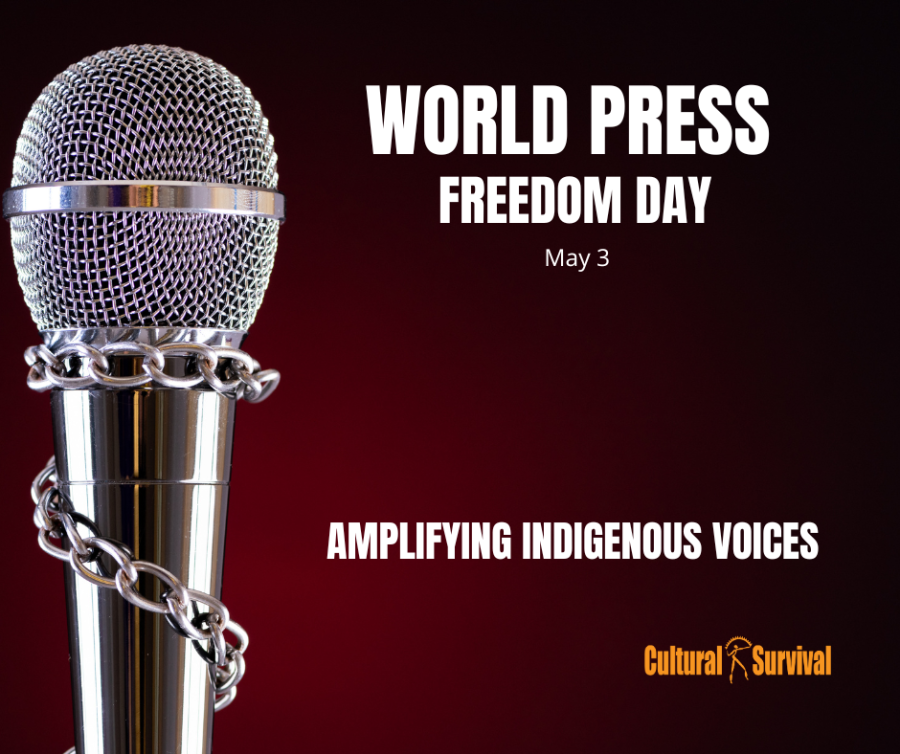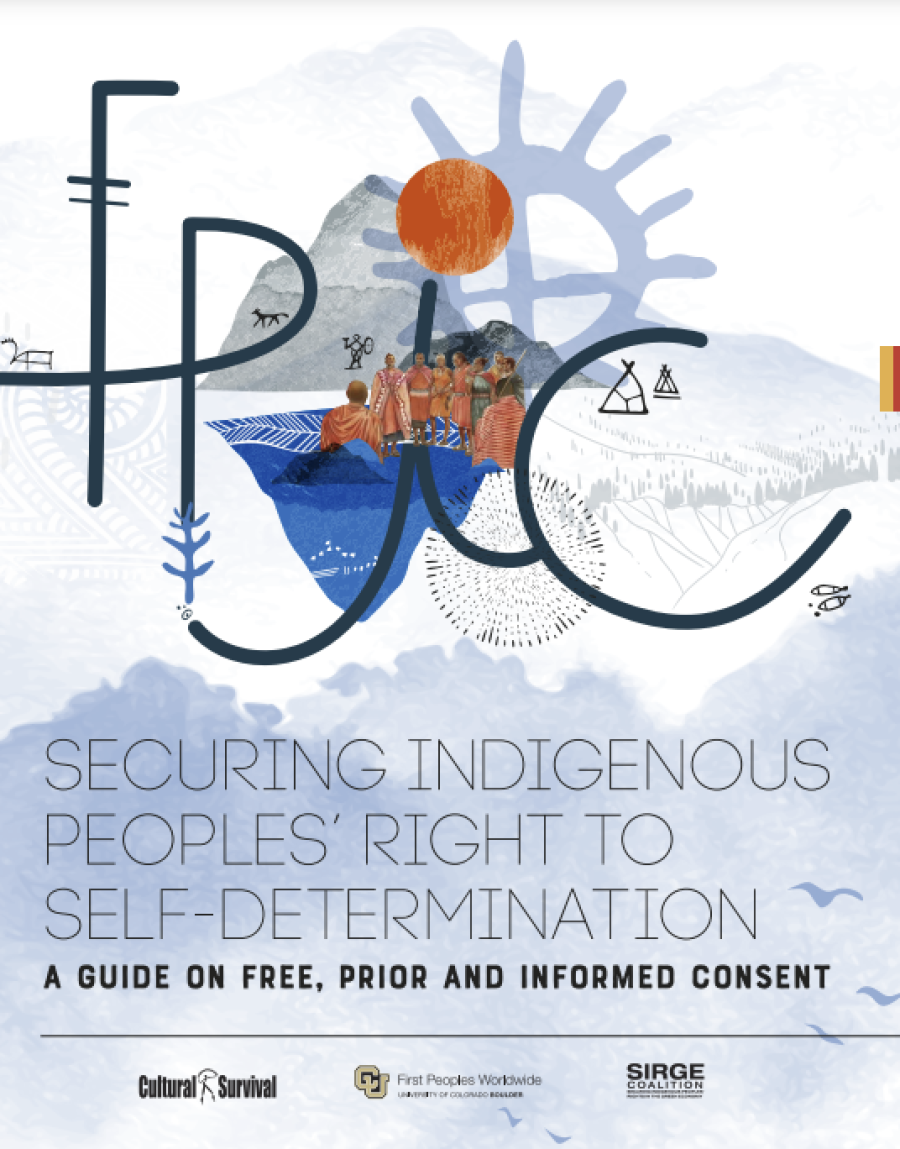
Today is International Day for the Elimination of Racial Discrimination
"Racism has been a banner to justify the enterprises of expansion, conquest, colonization and domination and has walked hand in hand with intolerance, injustice and violence."--Rigoberta Menchu Tum, Guatemalan Indigenous Leader and Nobel Peace Prize Laureate.
Since 1966 the United Nations has recognized March 22 as theInternational Day for the Elimination of Racial Discrimination.
Today, many Indigenous Peoples face constant human rights violations. They are marginalized, denied control over their own development that is based on their own values, disregarded when it comes to the exploitation of their natural resources, and often lack equal access to basic social services.
5 Things You Can Do Today to Combat Discrimination Against Indigenous Peoples:
 Stop Land Grabbing in Ethiopia. Write a letter or send an email. The Ethiopian government is forcing the Indigenous Peoples of the southwest off their ancestral lands and leasing these lands to foreign companies. Bulldozers are destroying the forests, farms, and grazing lands that have sustained Anuak, Mezenger, Nuer, Opo, and Komo peoples for centuries. While the foreign companies are planting food crops and agrofuels like oil palm, mainly for export, soldiers are forcing thousands of Indigenous people into state-created villages, simultaneously robbing them of their livelihoods and their cultural identity.
Stop Land Grabbing in Ethiopia. Write a letter or send an email. The Ethiopian government is forcing the Indigenous Peoples of the southwest off their ancestral lands and leasing these lands to foreign companies. Bulldozers are destroying the forests, farms, and grazing lands that have sustained Anuak, Mezenger, Nuer, Opo, and Komo peoples for centuries. While the foreign companies are planting food crops and agrofuels like oil palm, mainly for export, soldiers are forcing thousands of Indigenous people into state-created villages, simultaneously robbing them of their livelihoods and their cultural identity.
 Read, honor, and cite the UN Declaration on the Rights of Indigenous Peoples, especially Article 2 that states:"Indigenous peoples and individuals are free and equal to all other peoples and individuals and have the right to be free from any kind of discrimination, in the exercise of their rights, in particular that based on their Indigenous origin or identity."
Read, honor, and cite the UN Declaration on the Rights of Indigenous Peoples, especially Article 2 that states:"Indigenous peoples and individuals are free and equal to all other peoples and individuals and have the right to be free from any kind of discrimination, in the exercise of their rights, in particular that based on their Indigenous origin or identity."
- Learn about Native American language revitalization efforts in the US. Visit OurMotherTounges.org. D
 espite decades of oppressive boarding schools and discriminatory educational policies, Native community members are working tirelessly to keep their languages and cultures alive and to transmit them to future generations. Share by sending an audio postcard.
espite decades of oppressive boarding schools and discriminatory educational policies, Native community members are working tirelessly to keep their languages and cultures alive and to transmit them to future generations. Share by sending an audio postcard.
 Watch and learn about the community radio movement in Guatemala. Indigenous people in Guatemala are struggling to get a discriminatory telecommunications law changed and community radio legalized. A network of over 200 tiny community radio stations across the country broadcasts in one or more of the country's 23 Indigenous languages. The stations provide news, educational programming, health information, and traditional music, all reinforcing pride in Mayan heritage.
Watch and learn about the community radio movement in Guatemala. Indigenous people in Guatemala are struggling to get a discriminatory telecommunications law changed and community radio legalized. A network of over 200 tiny community radio stations across the country broadcasts in one or more of the country's 23 Indigenous languages. The stations provide news, educational programming, health information, and traditional music, all reinforcing pride in Mayan heritage.
- Share what you have learned with your networks and sensitize them to racial discrimination happening against Indigenous Peoples. Forward this message, tweet it, post it on facebook.
The world's Indigenous population is estimated at 370 million people living in more than 70 countries and made up of more than 5,000 distinct peoples. Although representing 5% of the world's population, Indigenous people account for 15% of the world's poor.
Indigenous people face huge disparities in terms of access to quality education and health care. In Guatemala 53 percent of Indigenous youth aged 15-19 have not completed primary education, as compared to 32 percent of non-Indigenous youth. Indigenous peoples also suffer from discrimination in terms of employment and income. According to the ILO, Indigenous workers in Latin America make on average about half of what non-Indigenous workers earn.
In the international arena, the landmark adoption of the Declaration on the Rights of Indigenous Peoples in September 2007 by the UN General Assembly, and the establishment of other human rights mechanisms that represent Indigenous interests, show that there is progress in the fight to address the results of historic and present discrimination. At the national level a small number of truth commissions have been established that have worked to redress certain discriminatory policies against Indigenous people. However much remains to be done. Please take action today!



